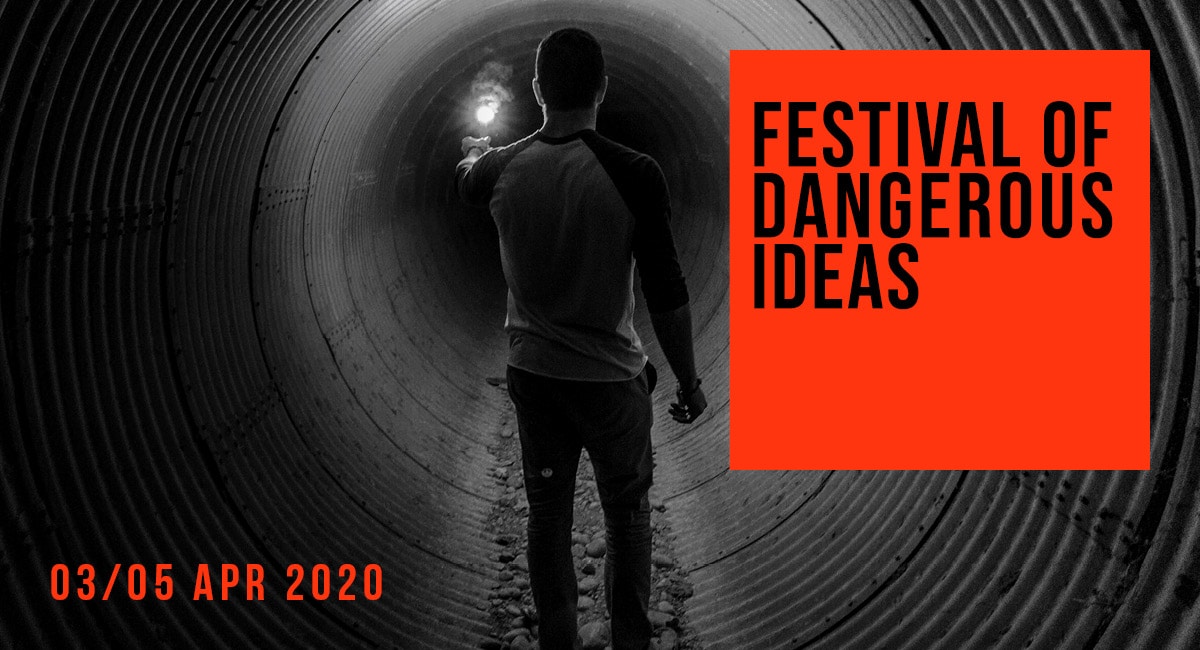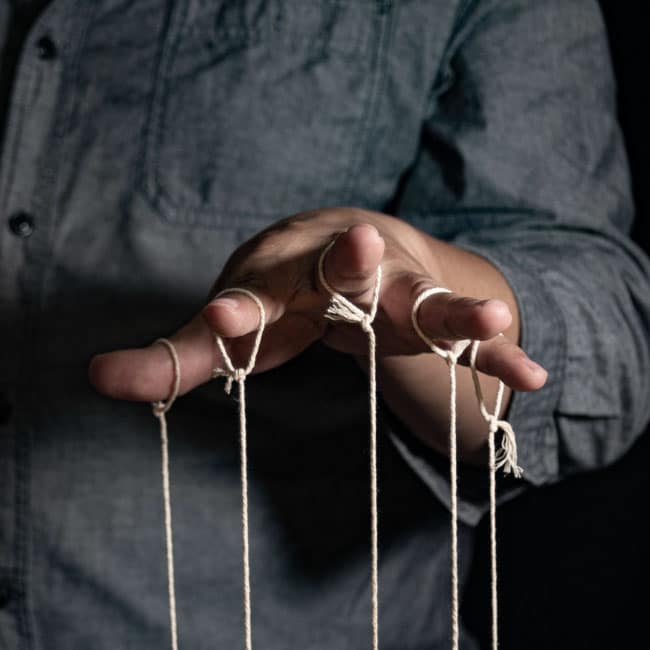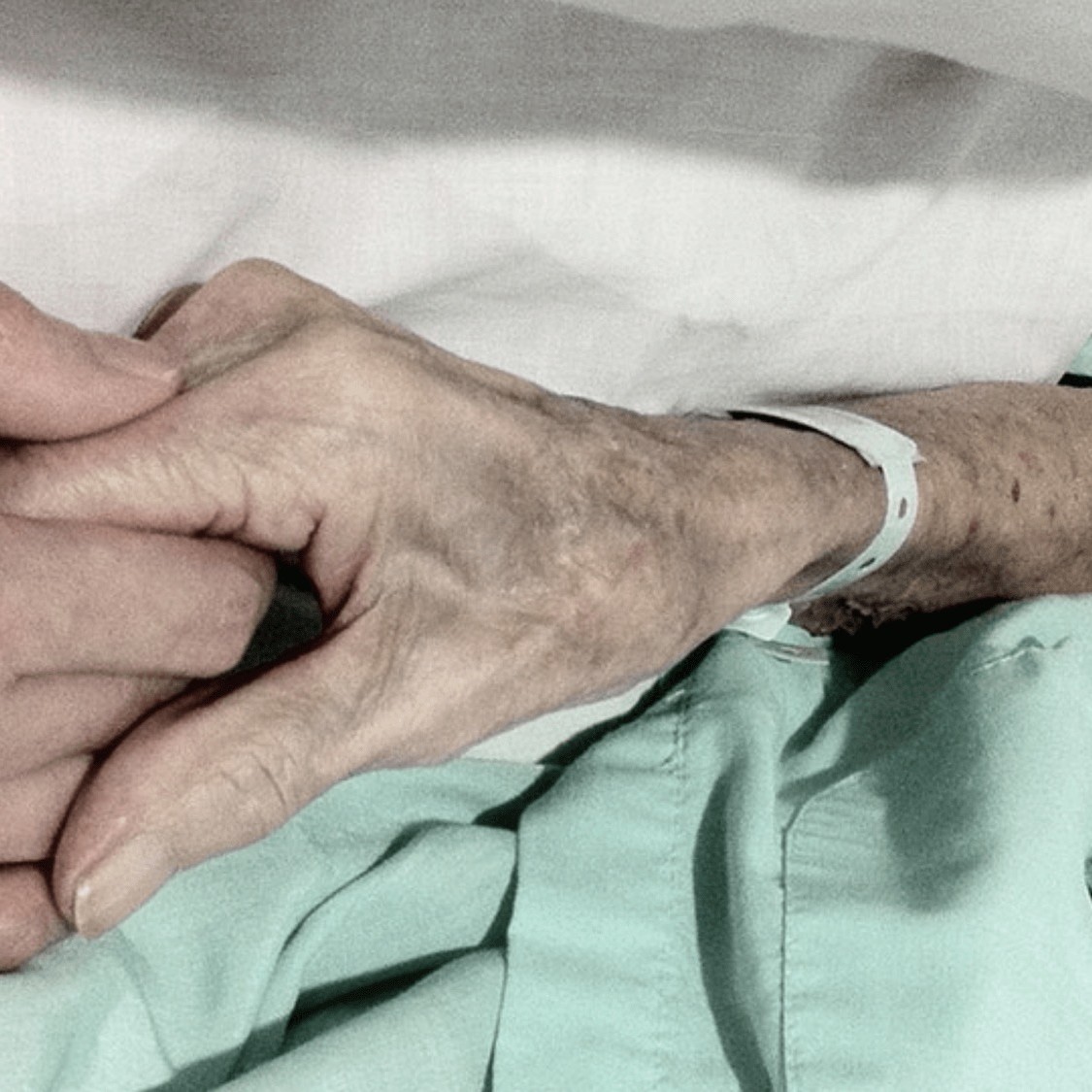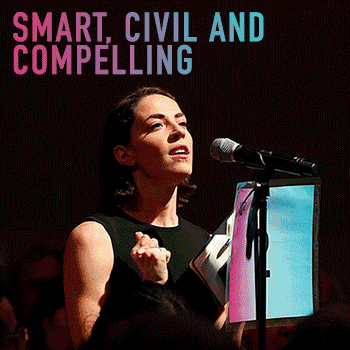Big Thinker: Peter Singer

Peter Singer (1946—present), one of world’s most influential living philosophers, is best known for applying rigorous logic to a range of practical issues from animal rights, giving to charity to the ethics of abortion and infanticide.
Singer was born in Melbourne in 1946 to Austrian Jewish Holocaust survivors. As a teen he declared his atheism and refused to celebrate his Bar Mitzvah. After studying law, history and philosophy at Melbourne University, he won a scholarship to Oxford University, writing his thesis on civil disobedience. In 1996 he ran unsuccessfully for the Greens in the Victorian State Parliament, and he has held posts at Melbourne, Monash, New York, London and Princeton Universities. His impact on public debate and academic philosophy cannot be overstated.
A key aspect of Singer’s contributions is the idea of ‘equal consideration of interests’. This informs both his views towards animals and charity. It means that we should consider the interests of any sentient beings who have the capacity to suffer and feel pleasure and pain.
Singer is a consequentialist, which means he defines ethical actions as ones that maximise overall pleasure and reduce overall pain. Part of what makes him such a challenging and influential thinker is his application of utilitarianism to real-world problems to offer counter-intuitive yet compelling solutions.’
Are you speciesist?
While at Oxford, Singer recalls a conversation with a friend over lunch that was the “most formative experience of [his] life”. Singer had the meat spaghetti, whereas his friend opted for the salad. His friend was the “first ethical vegetarian” he’d met. Two weeks later, Singer became a vegetarian and several years later published his seminal work Animal Liberation (1975).
Singer’s argument for not eating meat is more-or-less the same as another utilitarian philosopher, Jeremy Bentham. Bentham wrote that “the question is not can they reason or can they talk, but can they suffer?” Similarly, Singer argues that animals have the capacity to suffer. Just as we rightly condemn torture, we should also condemn practices like factory farming that inflict unjustifiable pain on non-human animals. He coined the term ‘speciesism’ to describe the privileging of humans over other animals.
Giving to charity
In Singer’s essay “Famine, Affluence and Morality” (1972), he argues that people in rich countries have a moral obligation to give to charities that help people in poverty overseas. He uses an analogy of a drowning child: if we were walking past a shallow pond and saw a child drowning, we would wade in and save the child, even if this meant wrecking our favourite and most expensive pair of shoes. Likewise, because we know there are children dying overseas from preventable poverty-related diseases, we should be giving at least some of our income to charities that fight this.
Opponents to Singer argue that his view about giving to charity is psychologically untenable, and that there are differences between giving to charity and saving a drowning child. For example, the physical act of pulling a child out from water is more morally compelling than sending a cheque overseas. Other arguments include: we don’t know the child will definitely be saved when we send the cheque, fighting poverty requires a collective global effort not just an individual donation, and charities are ineffective and have high overhead costs.
Singer concedes that there may be psychological reasons why people would save the drowning child yet don’t give much to charity, but he says even if it seems strange, rationally there are no relevant moral differences between the cases.
Responding to the criticism that charities may not be effective has led Singer to be a proponent of ‘effective altruism’. In his book The Most Good You Can Do (2015) he describes how a number of charity evaluators can recommend the most cost-effective way to do good. Singer recommends giving on a progressive scale, depending on one’s income.
Instead of pursuing careers in academia, some of Singer’s brightest past students have decided to work for Wall Street to make as much money as possible to then give this away to effective charities.
Controversy around infanticide
Singer has faced sustained criticism and protest throughout his career for his views on the sanctity of life and disability – especially in Germany, where in the 90’s, his views were compared to Nazism and university courses that set his books were boycotted. While he has always been a staunch supporter of abortion on the grounds that a foetus lacks self-consciousness and the criteria of personhood, he argues there is no moral difference between abortion in the womb and killing a newborn. Furthermore, because a newborn cannot yet be classified as a person, if its parents do not want it to survive, or if it has an extreme disability meaning that keeping it alive would be very costly, there is potential justification in killing it.
Religious sanctity-of-life critics argue that Singer’s ethics ignore the fundamental sanctity of human life. Disability rights advocates argue that Singer’s views are ableist, explaining that the quality of life of a disabled person is less than that of a non-disabled person ignores the socially-constructed nature of disability – its harms and inconveniences are largely because the built environment is made for able-bodied people.
Ethics in your inbox.
Get the latest inspiration, intelligence, events & more.
By signing up you agree to our privacy policy
You might be interested in…
Explainer
Society + Culture, Politics + Human Rights
Ethics Explainer: Just Punishment
Opinion + Analysis
Politics + Human Rights, Relationships, Society + Culture
Punching up: Who does it serve?
Opinion + Analysis
Politics + Human Rights, Relationships, Society + Culture
The sticky ethics of protests in a pandemic
Opinion + Analysis
Politics + Human Rights
If you don’t like politicians appealing to voters’ more base emotions, there is something you can do about it
Join our newsletter
BY The Ethics Centre
The Ethics Centre is a not-for-profit organisation developing innovative programs, services and experiences, designed to bring ethics to the centre of professional and personal life.
Why purpose, values, principles matter

Why purpose, values, principles matter
Opinion + AnalysisBusiness + Leadership
BY The Ethics Centre 13 AUG 2019
In advising organisations about ethics and culture, our Ethics Centre consultants often start by asking a simple question: “Do you have an ethical framework?” What we’re trying to understand is whether the company has a well-defined purpose, supported by values and principles. It’s the bedrock upon which every successful and well-run company is built.
Over the last twenty years we have witnessed a veritable roll call of organisations who have faced an ethics crisis. And for some, this crisis has threatened their very existence. And while the individual factors will vary, there is often one underlying root cause of this failing – a drift from the organisation’s ethics framework.
An ethics framework is a critical foundation for any organisation. It expresses their purpose, values and principles – quite literally, what they believe in and what standards they’ll uphold. In making these visible, as well as living across everything they do, it allows the organisation to be the best possible version of itself, now and into the future.
If an ethics framework is practically useful, it will provide a way to diagnose ethics failure, apportion responsibility and offer a means to provide justice for victims. However, this is merely the minimum standard. It also provides the ideal that should be strived for.
An ethics framework demands something more than mere compliance. It asks employees to exercise judgement and accept personal responsibility for the decisions they make. In order to be effective, it must be consistently embraced by every member of the organisation.
- Values tell us what’s good – they’re the things we strive for, desire and seek to protect.
- Principles tell us what’s right – outlining how we may or may not achieve our values.
- Purpose is our reason for being – it gives life to our values and principles.
The power of a good ethics framework
A strong ethics framework will unite an organisation’s workforce under a common goal, creating a far better workplace culture in the process. It will help leaders make decisions that are consistent with purpose, and improve decision-making capacity across the organisation. It supports a company to be more adaptable to change and clearly demonstrates to clients, customers and other stakeholders what they stand for and where they’re headed.
A company will struggle to develop consistent workplace policies or a corporate strategy without an ethics framework. But the reverse is also true: with an ethics framework all of these processes become far easier to navigate.
Purpose
In designing an ethics framework, much is made of purpose statements – primarily because they tend to be the most visible, public-facing feature of the framework. Creating a great purpose statement is something of an art form, it needs to achieve a great deal in a few words. It should be inspiring, have an aspirational quality, and capture the essence of your company’s ‘why?’.
Ideally, purpose statements should describe how your company is satisfying a need in society or in the market. Examples include Disney’s “To make people happy” or technology powerhouse Atlassian “To unleash the power in every team”. We’re quite proud of The Ethics Centre’s purpose statement which is “To bring ethics to the centre of everyday life.”
Values and principles
Values and principles enable employees to distinguish between what is regarded as important and the means by which they should be pursued. They help to frame business activity to ensure it stays true to its purpose and contract with society. A good framework will be;
- Stable – will not change significantly (in its essence) over the long term
- Understandable – by all of those required to apply it in practice
- Practical – able to be applied in practice and with consistency
- Authentic – it will ‘ring true’.
Good for business
Having an ethics framework isn’t designed to maximise profits – it’s designed to protect and improve the relationship between business and society. But it does often benefit business as a commercial enterprise as well. By motivating employees and demonstrating the value and purpose of the business to them, they serve as ambassadors for the organisation.
Although purpose statements, corporate values and organisational principles aren’t a guarantee of perfect ethical conduct, they are a crucial ingredient in building a culture in which bad behaviour is discouraged and dis-incentivised. They’re also a flag of goodwill to stakeholders that an organisation is looking to serve humanity and not simply turn a quick buck.
Ethics frameworks are not magic bullets to solve an organisation’s problems – they won’t guarantee that all employees will do the right thing every time. But approached with the proper degree of care and sophistication, the very process of developing these codes can have a profoundly positive effect on the culture of an enterprise. In establishing the things you believe in and identifying the behaviours you wish to encourage, you establish a framework for a great corporate culture – one based on respect, trust, collaboration and accountability. And who wouldn’t want that?
Creating an ethics framework
It may surprise you to learn that many companies have no ethics framework at all. And of those that do, many are working with largely meaningless statements that offer little in the way of guidance. Some were written decades ago. Some were cooked up by marketing strategists as part of a corporate branding exercise. Whatever their provenance, there’s a sense that the framework has ceased to have any meaning for the people who work at the company.
Developing an ethics framework is only the starting point. Ensuring the framework is fully embedded and understood throughout an organisation and lived by its people is the harder challenge. Over three decades of consulting work, we’ve helped countless organisations to develop and embed their ethics frameworks. We’ve worked across multiple sectors and with companies of many shapes and sizes.
If you’d like to talk to The Ethics Centre about creating an ethical framework for your organisation, we’d love to hear from you.
Ethics in your inbox.
Get the latest inspiration, intelligence, events & more.
By signing up you agree to our privacy policy
You might be interested in…
Opinion + Analysis
Business + Leadership
‘Hear no evil’ – how typical corporate communication leaves out the ethics
Opinion + Analysis
Business + Leadership, Relationships
Beyond the headlines of the Westpac breaches
Opinion + Analysis
Business + Leadership, Society + Culture
Banking royal commission: The world of loopholes has ended
Opinion + Analysis
Business + Leadership, Science + Technology
One giant leap for man, one step back for everyone else: Why space exploration must be inclusive
BY The Ethics Centre
The Ethics Centre is a not-for-profit organisation developing innovative programs, services and experiences, designed to bring ethics to the centre of professional and personal life.
How to spot an ototoxic leader

How to spot an ototoxic leader
Opinion + AnalysisBusiness + Leadership
BY John Neil The Ethics Centre 13 AUG 2019
We all know about toxic leaders. There are plenty of them around. Some are especially skilled with the ability to use their words to grind down anyone they perceive as a threat.
I call these leaders ototoxic – named after the medical description of drugs that cause adverse reactions to the ears’ cochlea or auditory nerves.
Ototoxicity is a distinctive quality of a poor leader, who can leave a trail of damage.
Ototoxic leaders betray themselves by a number of logical fallacies – hallmarks of their communication style. US President Donald Trump has given us plenty of examples during his presidency.
They play the person not the argument
The ototoxic leader will go after a person’s character or pick on a personal trait. They take aim at anything personal, but will avoid addressing the logical merits of the argument. This is known as an ad hominem fallacy.
Donald Trump critiqued fellow Republicans – “Lyin’ Ted” (Cruz), “Lil’ Marco” (Rubio), “Low Energy Jeb” (Bush). There were also repeated references to “Crooked Hillary”. He repeatedly accused opponents of being “too aggressive”, (usually a woman) or “not forceful enough” (usually a man), or in the case of “Lil’ Bob” Corker, of not being “tall” enough to be taken seriously.
They use straw-man arguments
An ototoxic leader will also exaggerate, or blatantly fabricate, an opposing point of view. This allows them to position their perspective as more reasonable and practical. In the third presidential debate before his election, Trump accused Hillary Clinton of advocating an open border policy, misquoting comments she made in relation to free trade. In a climate of widespread national hostility towards immigration, the border wall seemed to many as the more reasonable option.
In the workplace, an ototoxic leader will use overblown rhetoric to belittle someone else’s initiative, exaggerating potential cost overruns or overstating other risks in order to then position their proposal as the more reasonable one.
They appeal to hypocrisy
This defensive strategy turns an initial criticism back on the accuser. Trump used this rhetorical flourish during his presidency after refusing to face criticisms that he didn’t take a position on the violence following the Charlottesville rally. Rebutting the criticisms of neo-Nazis and the Ku Klux Klan, Trump maintained that ‘many others’ had also done bad things, implying they were equally culpable.
In the workplace, an ototoxic leader can often be heard defending their actions using the appeal to hypocrisy. “You think I’m aggressive? What about that meeting last week when you didn’t agree with me? You were just as bad, if not worse!”
They use the firefighter arsonist tactic
Named after the rare syndrome where firefighters light fires intentionally only to later arrive as a hero to put it out, the ototoxic leader will overly dramatise a potential problem, at the same time pointing the finger of blame at others for causing it. Once the situation reaches a critical mass, the ototoxic leader will then step in with a last-minute solution, ‘saving the day’.
Trump is well versed in this tactic. Stoking anti-Muslim sentiment as early as March 2011 with his calls for then President Obama to show his birth certificate and trading on unfounded ‘birther’ claims, Trump proceeded to inflame fears throughout the election campaign. He threatened the mass deportation of Syrian asylum seekers while promising to create a database of all Muslims in the US, along with making false claims of seeing ‘thousands and thousands’ of people in New Jersey celebrating the collapse of the World Trade Centre Towers in 2001. Trump stepped in to solve the ‘problem’ by signing his two travel bans within the first 100 days of his tenure.
More recently, Trump repeatedly covered himself in glory after meeting Kim Jong-un at their historic first summit in June 2018. Mere months after painting Kim as “Little Rocket Man” who, according to Trump posed the greatest threat to Western civilisation and was enabled by his predecessors who “should have been handled a long time ago”, following the summit Trump celebrated the “success” of the meeting. He waxed lyrical about the leaders “tremendous” relationship, including the beautiful “love letters” he received from the North Korean dictator in the lead up to the summit, while going on to extol the virtues of Kim, including his “great personality”, his sense of humour, intelligence and his negotiation abilities. Following the script of the hero who rides in to save the day, Trump tweeted that “everybody can now feel much safer than the day I took office…there is no longer a nuclear threat from North Korea.”
In the workplace, the ototoxic leader will spark a flame of disquiet around a project or strategy then proceed to escalate concerns – often through back channel politics – before presenting a grand ‘solution’ that saves the day.
Passive and aggressive
Ototoxic leaders can be aggressive or passive. The actively toxic communicator, who uses aggressive and intimidating language to subordinate others, can be bombastic, opinionated and openly dismissive of those who have different views. Their default mode of questioning almost exclusively involves closed questions (yes or no). Their inability to be open and listen to other’s views is usually a symptom of their lack of empathy.
The passive ototoxic leader is no less poisonous. In one-on-one settings, they are an impatient listener and will quickly interrupt their interlocutor in order to express their own view, often cutting the other person off in mid-sentence.
This ototoxic leader will tend to become frustrated in meetings if the consensus view is running contrary to theirs, to the point they will actively disengage from what’s going on in the room. They will resist all attempts to re-engage them by looking to shut down the conversation wherever possible.
Energy suckers
The net effect of the ototoxic leader’s tactics and communication style is to de-energise those they come into contact with.
Research shows that these de-energising ties have a disproportionate impact on an organisation’s culture. They are a ‘toxicity multiplier’, reducing the levels of individual performance, employee engagement and general well-being.
A disproportionate level of conflict between teams is generated and trust decreases. Rather than investing the energy to achieve their goals, those who work under an ototoxic leader spend a disproportionate amount of time analysing the relationship and devising strategies to palliate the person.
Ethics in your inbox.
Get the latest inspiration, intelligence, events & more.
By signing up you agree to our privacy policy
You might be interested in…
Opinion + Analysis
Business + Leadership
Holly Kramer on diversity in hiring
Opinion + Analysis
Business + Leadership, Politics + Human Rights
Should corporate Australia have a voice?
Opinion + Analysis
Business + Leadership, Society + Culture
The Ethics Centre: A look back on the highlights of 2018
Opinion + Analysis
Business + Leadership, Relationships, Society + Culture
Extending the education pathway
BY John Neil
John leads the Centre’s major consulting projects, leadership and culture programs and product development. Drawing on 20 years of experience, John has worked with Australia’s largest organisations in developing and delivering solutions to bring ethics to the centre of business design, culture development, and organisational decision making. Before joining us, John worked in the business school at the University of Technology Sydney. During his time there, he inspired students and colleagues alike through his research and teaching, and chaired the Ethics Working Group to develop an approach to embed ethics in the Bachelor of Business curriculum.
BY The Ethics Centre
The Ethics Centre is a not-for-profit organisation developing innovative programs, services and experiences, designed to bring ethics to the centre of professional and personal life.
Save the date: FODI returns in 2020!

Save the date: FODI returns in 2020!
Opinion + AnalysisSociety + Culture
BY The Ethics Centre 7 AUG 2019
Festival of Dangerous Ideas (FODI), Australia’s original provocative ideas festival, returns in 2020 for its 10th festival. April 3 to 5 will be a milestone weekend of provocation, contemplation, critical thinking and preparation for the battles of the next decade.
Presented by The Ethics Centre, FODI 2020 will once again feature leading thinkers from Australia and around the world to interrogate the issues of today and prepare for the major shifts of tomorrow.
FODI Festival Director, Danielle Harvey said: “Over the past decade the number of avenues for people to talk and share their opinions has steadily increased, we are more connected than ever with like-minded people, but the cost has been significant. We are losing the ability to listen.
“Without the tools to listen to other opinions and contemplate new ideas, society risks fracturing like never before.”
“Without the tools to listen to other opinions and contemplate new ideas, society risks fracturing like never before. The Festival of Dangerous Ideas has always been an opportunity for deep thinking, carving out precious space for disagreement, difference of opinion and critical thinking.
“As we brace for 2020, FODI will celebrate its 10th anniversary by looking again to the future and presenting a cohort of FODI alumni, representing the world’s best thinkers, journalists, creators and specialists, giving Sydneysiders an opportunity to listen to what will be shaping the world tomorrow.”
The Ethics Centre Executive Director, Dr Simon Longstaff said:
“The Ethics Centre is thrilled to once again be presenting the Festival of Dangerous Ideas. One of The Ethics Centre’s strategic priorities is to build and sustain the ‘ethical infrastructure’ that underpins a free, dynamic and democratic society.
“Fragile societies break apart when challenged. The resilient cohere around a common desire to face the truth – even if it is hard to bear.”
“Fragile societies break apart when challenged. The resilient cohere around a common desire to face the truth – even if it is hard to bear. FODI tests the truth of the claim that we are a ‘civil’ society – and proves that even in moments of profound disagreement – we have the strength to live an ‘examined life’.”
Last year’s sell-out festival featured Stephen Fry, Rukmini Callimachi, Niall Ferguson, Megan Phelps-Roper, Chuck Klosterman and Toby Walsh.
More information, including the full program and festival venue, will be announced in the coming months. Visit festivalofdangerousideas.com to subscribe to be the first to hear our news.
MOST POPULAR
ArticleBeing Human
Banning euthanasia is an attack on human dignity
ArticleHEALTH + WELLBEING
HSC exams matter – but not for the reasons you think
ArticleBeing Human
There’s no good reason to keep women off the front lines
BY The Ethics Centre
The Ethics Centre is a not-for-profit organisation developing innovative programs, services and experiences, designed to bring ethics to the centre of professional and personal life.
Drawing a line on corruption: Operation eclipse submission

Drawing a line on corruption: Operation eclipse submission
Opinion + AnalysisBusiness + LeadershipPolitics + Human RightsSociety + Culture
BY The Ethics Centre 6 AUG 2019
The Ethics Centre (TEC) has made a submission to the NSW Independent Commission Against Corruption (ICAC) regarding its discussion paper, The Regulation of Lobbying, Access and Influence in NSW: A Chance To Have Your Say.
Released in April 2019 as part of Operation Eclipse, it’s public review into how lobbying activities in NSW should be regulated.
As a result of the submission TEC Executive Director, Dr Simon Longstaff has been invited to bear witness at the inquiry, which will also consider the need to rebuild public trust in government institutions and parliamentarians.
Our submission acknowledged the decline in trust in government as part of a broader crisis experienced across our institutional landscape – including the private sector, the media and the NGO sector. It is TEC’s view that the time has come to take deliberate and comprehensive action to restore the ethical infrastructure of society.
We support the principles being applied to the regulation of lobbying: transparency, integrity, fairness and freedom.
Key points within The Ethics Centres submission include:
-
- There is a difference between making representations to government on one’s own behalf and the practice of paying another person or party with informal government connections to advocate to government. TEC views the latter to be ‘lobbying’
-
- Lobbying has the potential to allow the government to be influenced more by wealthier parties, and interfere with the duty of officials and parliamentarians to act in the public interest
-
- No amount of compliance requirements can compensate for a poor decision making culture or an inability of officials, at any level, to make ethical decisions. While an awareness and understanding of an official’s obligations is necessary, it is not sufficient. There is a need to build their capacity to make ethical decisions and support an ethical decision making culture.
You can read the full submission here.
Update
Dr Simon Longstaff, Executive Director at The Ethics Centre, presented as a witness to the Commission on Monday 5 August. You can read the public transcript on the ICAC website here.
MOST POPULAR
ArticleBeing Human
Banning euthanasia is an attack on human dignity
ArticleHEALTH + WELLBEING
HSC exams matter – but not for the reasons you think
ArticleBeing Human
There’s no good reason to keep women off the front lines
BY The Ethics Centre
The Ethics Centre is a not-for-profit organisation developing innovative programs, services and experiences, designed to bring ethics to the centre of professional and personal life.
Shadow values: What really lies beneath?

Shadow values: What really lies beneath?
Opinion + AnalysisBusiness + Leadership
BY John Neil The Ethics Centre 6 JUL 2019
Respect, integrity, communication, and excellence. They’re admirable and worthy corporate values – ones you’d proudly make official and put on the wall.
Unfortunately, those same values belonged to Enron. Only 12 months before declaring bankruptcy in 2001, the largest in US history at the time, Enron received plaudits for its 64 page Code of Ethics. It was named “America’s Most Innovative Company” by Fortune magazine and received numerous awards for corporate citizenship and environmental policies.
Enron’s failings have been well documented as the prototypical case study of what can happen when an organisation decouples its official values, principles and purpose – what we call an Ethics Framework – from its everyday behaviours.
It’s a perennial challenge for all organisations. Ensuring behaviour, policies, systems and processes are aligned with that ethical framework is no easy feat. If the managers of an organisation say one thing but consistently do something else entirely, it breeds cynicism and disconnection that permeates the entire workforce. Customers and other stakeholders eventually figure it out as well.
Hidden from view
Many organisations have a second set of values lurking beneath the surface. These unofficial values – no less powerful than the official ones – are called ‘shadow values’.
Uncovering shadow values can reveal deeper facets of an organisation’s actual operating culture. By proactively identifying and monitoring its shadow values, an organisation is better placed to see any early drift in the alignment of its culture from its values and principles.
Consider the fraudulent behaviour of Volkswagen engineers who deliberately programmed 500,000 diesel-powered vehicles to provide false readings during emissions testing. Despite the company’s explicit corporate values of excellence, professionalism and a commitment to integrity, it became clear through the accounts of investigators and employees, that a number of unofficial shadow values were dominating the organisation’s culture.
Volkswagen’s official and shadow values
In psychology, the dark side of human nature is often described as the alter ego. While Freud referred to the Id, Jung identified it as the shadow, referring to the sum total of all those unpleasant qualities we prefer to hide. The shadow gains its power through being habitually repressed. And it manifests in a multitude of symptoms and psychological disturbances.
Similarly, an organisation’s shadow values gain their power from being kept below the surface. At their worst, they are destructive mutations of the official values which pose an existential threat to the integrity of an organisation’s ethical culture.
Despite the official values of ‘teamwork’ and ‘respect for individuals’, Volkswagen’s implicit leadership model was widely recognised as one that valued ‘autocracy’ and delivering ‘success’ at any cost.
A focus on fear
A culture of ‘fear’ was common, with intimidation used as a primary motivator for achieving sales targets. Fear provided a bulwark against any dissenting voice being raised to challenge decisions. These voices were kept silent by a culture that fostered ‘internal competition’ and ‘secrecy’.
Shadow values can also throw into relief sanctioned organisational values, revealing subtle nuances in the way they are understood and practiced day to day. For Volkswagen, its stated value of ‘excellence’ was subsequently revealed to be a very specific type of value – ‘technical excellence’.
The value of technical excellence has been evident throughout the company’s history. Volkswagon turned to it in that 2015 scandal, just as it did in the 1970s when it was found guilty of similar manipulative practices to avoid emissions regulations.
These shadow values had their genesis in the shift in VW’s purpose. Following the appointment of Martin Winterkorn as CEO in 2007, Volkswagen set itself a goal: “To become the world’s largest automaker by 2018”. Winterkorn’s strategy was premised on developing a competitive advantage in ‘clean’ diesel rather than hybrids and other alternatives.
A shift in purpose
With tighter regulatory controls in the US, intense pressure was focussed on engineers to develop a technical solution, which they duly delivered, under the authority of the shadow values. In secretly modifying existing software capabilities that overrode pollution controls, Volkswagen went on to sell over 12 million illegal vehicles and met the target of becoming the “world’s largest automaker”, three years ahead of schedule.
This shift in purpose was not recognised formally in the company’s ethical framework. Allowing shadow values to proliferate unmoored the company from its purpose, values and principles. Indeed many of those shadow values were officially discouraged by VW’s ethical framework.
After his appointment in June 2017, new CEO Matthias Müller noted, “Our management culture needs to improve… openness, the courage to make innovations and speak one’s mind, as well as true willingness to cooperate are all essential elements… We need a solid system of values as a compass for our daily work.”
One hopes this “solid system of values” will be more attuned to the ones that might be still operating in the shadows.
At their worst, shadow values are in complete opposition to official values. At their best, they provide a nuanced expression of what an organisation really cares about. Either way, they are very revealing of an organisation’s true, operating culture.
The Ethics Centre is a world leader in assessing cultural health and building the leadership capability to make good ethical decisions in complexity. To arrange a confidential conversation contact the team at consulting@ethics.org.au. Visit our consulting page to learn more.
Ethics in your inbox.
Get the latest inspiration, intelligence, events & more.
By signing up you agree to our privacy policy
You might be interested in…
Opinion + Analysis
Business + Leadership
It’s time to consider who loses when money comes cheap
Opinion + Analysis
Business + Leadership, Politics + Human Rights
Who’s afraid of the strongman?
Opinion + Analysis
Business + Leadership, Politics + Human Rights
Vaccination guidelines for businesses
Opinion + Analysis
Business + Leadership, Relationships
Corporate whistleblowing: Balancing moral courage with moral responsibility
BY John Neil
John leads the Centre’s major consulting projects, leadership and culture programs and product development. Drawing on 20 years of experience, John has worked with Australia’s largest organisations in developing and delivering solutions to bring ethics to the centre of business design, culture development, and organisational decision making. Before joining us, John worked in the business school at the University of Technology Sydney. During his time there, he inspired students and colleagues alike through his research and teaching, and chaired the Ethics Working Group to develop an approach to embed ethics in the Bachelor of Business curriculum.
BY The Ethics Centre
The Ethics Centre is a not-for-profit organisation developing innovative programs, services and experiences, designed to bring ethics to the centre of professional and personal life.
The dark side of the Australian workplace

The dark side of the Australian workplace
Opinion + AnalysisBusiness + Leadership
BY The Ethics Centre 5 JUN 2019
The founder of a law firm recently explained long working days under high pressure at his firm, saying: “People come here with the knowledge and expectation that they’re going to have to work hard”.
He could have been speaking for any number of employers in high-stress industries.
As young graduates leave university to work in top-tier law firms, in hospitals, merchant banks and professional services, they are already well acquainted with hard work and competition. They have strived to become the best and brightest through many years of education, often polishing their resumes with extra-curricular achievements in sport, music and volunteer work – all the while supporting themselves with part-time jobs.
These young people know what it is like to “burn the candle at both ends”, to run themselves ragged getting ahead of the competition so they can get one of the prized entry-level jobs that may lead to continued success.
They expect to be worked hard. They probably don’t expect to be worked to death.
Two leading law firms have recently been investigated over complaints about “extreme working conditions”, where one solicitor warned that it had reached a “point someone will die or have some other physical or mental health episode’’.
An unprecedented move by WorkSafe
In one well-publicised example, WorkSafe Victoria had launched an investigation into King & Wood Mallesons in Melbourne after a similar complaint regarding overwork and exhaustion, particularly during the Banking and Finance Royal Commission.
King & Wood Mallesons chief executive partner, Berkeley Cox, says the legal industry is paying much closer attention to the issue of work stress.
“We have learnt so much over the past year and recognise that there is a lot more that law firms can and should be doing to improve the everyday work experience for individuals and the systematic issues at an organisational and industry-wide level,” he says.
“While we have much more to do on our journey, we want our workplace to be one where every individual has the opportunity to flourish.”
WorkSafe’s action is regarded as unprecedented in the legal industry and some pundits have nominated it as a “death knell” for the concept of the “billable hour” – whereby firms charge clients for each hour their lawyers work.
The billable hours system means that workers are incentivised to work longer, rather than smarter.
Certainly, the statistics around mental health in the legal profession are alarming.
Around 50 per cent of law students, 33 per cent of solicitors and 20 per cent of barristers report they have experienced depression. Further, 11 per cent of lawyers contemplate suicide each month, according to research published on the website of legal mental health charity, Minds Count (formerly the Tristan Jepson Memorial Foundation).
A punishing rite of passage
Investigating the causes of this crisis and exploring possible solutions usually leads back to an industry culture of being always-available to clients, unreasonable demands for fast turnarounds and the “billable hour”. There is also a long-held belief in the professions that young people will work punishing hours as a “rite of passage” that will pay off in the long run.
In the legal industry, Royal Commissions tend to amp up the pressure, with work going on in 24-hour cycles in 15-hour shifts, seven days per week, in an environment that is intolerant of mistakes or human frailties.
As it is, lawyers work longer overtime than professionals in any other field in Australia, according to a position paper by The Legal Forecast, a not-for-profit group that provides support for students and early-career lawyers.
Under discussion at a recent event, hosted by The Legal Forecast, was the exacting timetabling of the Hayne Royal Commission and the impact it had on lawyers, particularly junior staff.
DLA Piper Australia co-managing partner and Minds Count board member, Melinda Upton, asked: “Was it worth the sacrifice when you look at statistics on people committing suicide and entering depression? Did it have to be done that quickly?”.
This point was picked up by Scarlet Reid, a partner at McCullough Robertson Lawyers, who said she worked on the Hayne Royal Commission and is now working on this year’s Aged Care Royal Commission.
Reid said the Aged Care commission was proceeding at a “much slower pace” and questioned whether the banking Royal Commission really had to be completed in one year.
“Politics drives that as well,” she said. “We could slow down.”
She said many of the organisations involved in giving evidence to the Aged Care Royal Commission were not-for-profits that did not have the funds to pay for large legal teams – a factor that puts a brake on the pace.
Need to slow down
Partner at legal recruitment firm ECP Legal, Justin Whealing, said a senior banking corporate counsel told him he wished the law firms and their clients had teamed up to ask the commissioner for more time.
“I think the legal profession could do that better, in terms of presenting a united front to speak in one voice about how meaningful changes can be made for the betterment of the profession. Clients would get better advice as well and it would be more sustainable for the people in it,” Whealing said. He also advocated having an industry-wide standard, setting out conditions such as maximum work hours and mandatory breaks and using targets.
Reid acknowledged the bind that law firms find themselves in: “It’s very difficult when you’ve got clients needing to meet deadlines, getting into witness boxes. And, you know, it’s a balance”.
Some firms are using contract lawyers to help manage workload over peak times, says the head of Innovation and Project Delivery at Pinsent Masons, Alison Laird. Even without being involved in a Royal Commission, there are huge deadlines that must be met. “So we ramp up the team, and then we ramp them down again,” she says.
Getting rid of ‘billable hours’
Laird said things will not improve until law firms change the way they remunerate their people and get rid of the “billable hour” system, which drives lawyers to bill a certain number of hours per year to the detriment of their mental wellbeing. “It is the one thing that impacts innovation more than anything else,” she says.
At least one top tier firm, Corrs Chambers Westgarth, is dumping the billable hour concept (while adding an extra week of annual leave) and replacing them with annual billing targets, which allow for peaks and troughs of client-billed activity.
However, Melinda Upton warned that replacing the billable hours system cannot happen without the support of clients, who are likely to push back on any change. Member of The Legal Forecast NSW, Edwin Montoya Zorrilla, supports a move away from billable hours and offers more remedies: the automation of various legal tasks and integrating long-term thinking into practice management and recruitment.
“This discussion also includes more specific strategies such as optimising systems of delegation and work sharing, better communication with clients, and using technology-assisted project management tools,” he writes in an article for Westlaw.
“Yet, none of these strategies, however innovative, take effect overnight, and there remains a tendency to return to traditional means of meeting the bottom line.”
Encourage safe work
Upton said it is a responsibility of law firm partners and management to educate the partners about staff wellbeing and “to call it out when they don’t come to the table on it”.
They can also highlight examples where enforcing or encouraging safe work practices has worked well.
“Usually it means your attrition rates have improved, you’ve got a much happier team, you’ve got succession and talent mapping and progression going on, you get good client feedback. And clients really don’t care where you work.”
Reid says working shorter hours may mean that law partners have to accept they will make less money.
When partners discuss remuneration structures at a firm-wide level, they need to be talking about encouraging the sharing of work between teams, the use of contract lawyers and other ways to create a sustainable work environment.
“There is an element of almost a corporate greed associated with the driving of long hours … unless you’re going to change the remuneration structure, then it’s going to be hard to drive behaviour,” she says.
This article was originally written for The Ethics Alliance. The Alliance is a community of organisations sharing insights and learning together, to find a better way of doing business.

This article was originally written for The Ethics Alliance. Find out more about this corporate membership program. Already a member? Log in to the membership portal for more content and tools here.
Ethics in your inbox.
Get the latest inspiration, intelligence, events & more.
By signing up you agree to our privacy policy
You might be interested in…
Opinion + Analysis
Business + Leadership
Ethical redundancies continue to be missing from the Australian workforce
Opinion + Analysis
Business + Leadership, Politics + Human Rights, Society + Culture
Corruption, decency and probity advice
Opinion + Analysis
Business + Leadership
The 6 ways corporate values fail
Opinion + Analysis
Business + Leadership
Explainer: Getting to know Richard Branson’s B Team
BY The Ethics Centre
The Ethics Centre is a not-for-profit organisation developing innovative programs, services and experiences, designed to bring ethics to the centre of professional and personal life.
Why the future is workless

Predictions for the future of work are grim – depending on your point of view. Many of our jobs are being automated out of existence, but it looks like we’ll have much more free time.
Writer and Doctor of Philosophy, Tim Dunlop, says people and governments are going to have to rethink how we support ourselves when there isn’t enough paid work to go around.
Dunlop does not ascribe to the view often put forward by economists that technology will generate enough jobs to replace the ones that are destroyed by robotics and artificial intelligence.
“I don’t know if that’s necessarily true in the medium term… I think there’s going to be a really nasty transition for more than a generation,” says Dunlop, the author of Why the Future is Workless and The Future of Everything.
“We are going through this huge period of transition at the moment and we don’t really know where it’s heading. We’re at the bottom of the curve, in terms of what [new technologies] are going to be capable of.”
Dunlop says framing question around the future of work as “will a robot take my job?”, is reductive. Instead, we should be looking at what sort of job will be available and what the conditions will be for the jobs that are offered.
“If we are working less hours, or there is less work, or the economy just needs fewer people, and then we don’t have a technology problem, we’ve got a distribution problem,” he says.
The “hollowing out” of the job market means that middle-skilled jobs are disappearing because they can be automated. Trying to “upskill” people who have been displaced, or redirect them into jobs that need a human touch (such as caring jobs) is not an answer for everyone.
“Not everybody can have a high-skill, high-paid sort of job. You need those middle-level jobs as well. And if you don’t have those, then society’s got a problem.” he says.
Dunlop says one way of addressing the issue is a universal basic income: where everybody gets a standard payment to cover their basic needs.
“I don’t think you can rely on wages to distribute wealth in an equitable way, in the way that might have been in the recent past,” he says.
The idea of a Universal Basic Income has been around since the 16th Century and is unconditional – not based on household income.
In Australia, the single-person pension (now just over $24,000 per annum) might be seen as an appropriate level of payment, according to Dunlop, in an article written for the Inside Story website.
“It is basic also in the sense that it provides an income floor below which no one can fall. The payment is unconditional in that no one has to fulfil any obligations in order to receive it, and even if you earn other income you’re still eligible. That makes it universal, equally available to the poorest member of society as it is to the start-up billionaire,” he writes.
Much of the discomfort often voiced about such a scheme centres around the idea that people are being paid to “do nothing” and that it removes the incentive to work.
However, trials show that in developing countries, people use the money to improve their situation, starting businesses, sending children to school and avoiding prostitution. In Europe and Canada, people receiving the payment tend to stay in their jobs and entrepreneurship increases.
Trials of the Universal Basic Income are now taking place globally – from Switzerland to Canada to Kenya – but most are limited to the unemployed or financially needy, rather than being universal.
Dunlop says that, rather than worrying about whether people “deserve” the payment, we should accept the concept of “shared citizenship”. Whether we do paid work, or not, we are all contributing to the overall wealth of society.
Inequality comes when wealth gets divided up by those who do work that is paid and those who own the means of production. With a Universal Basic Income, everybody’s contribution is valued and people get a benefit from the roles they play in the formal and informal economy, he says.
So what will we be doing in the future if we are not doing paid work? Dunlop says we will still have our hobbies, passions and families – and we can derive just as much (if not more) meaning from those things as we do from our jobs.
We are already seeing evidence of efforts to reduce the hours of work, with companies trying four-day work weeks (paid for five), the Swedish Government trialling a six-hour workday, a French law banning work emails after hours.
Dunlop says a “work ethic” culture makes it hard for these reforms to succeed and unions tend to see a push for reduced hours as a “trojan horse” threat of increasing casualisation and insecure work.
“That’s where things like the French rule about emails probably comes in handy. It sets some parameters around what society sees as acceptable and maybe it needs some government leadership in this area.”

This article was originally written for The Ethics Alliance. Find out more about this corporate membership program. Already a member? Log in to the membership portal for more content and tools here.
Ethics in your inbox.
Get the latest inspiration, intelligence, events & more.
By signing up you agree to our privacy policy
You might be interested in…
Opinion + Analysis
Business + Leadership
Why purpose, values, principles matter
Opinion + Analysis
Business + Leadership, Politics + Human Rights
Should corporate Australia have a voice?
Opinion + Analysis
Business + Leadership
Who are corporations willing to sacrifice in order to retain their reputation?
Opinion + Analysis
Business + Leadership
Dame Julia Cleverdon on social responsibility
BY The Ethics Centre
The Ethics Centre is a not-for-profit organisation developing innovative programs, services and experiences, designed to bring ethics to the centre of professional and personal life.
Where do ethics and politics meet?

Where do ethics and politics meet?
Opinion + AnalysisPolitics + Human Rights
BY The Ethics Centre 26 APR 2019
In the Western philosophical tradition, ethics and politics were frequently deemed to be two sides of a single coin.
Aristotle’s Ethics sought to answer the question of what is a good life for an individual person. His Politics considered what is a good life for a community (a polis). So, for the Ancient Greeks, at least, the good life existed on an unbroken continuum ranging from the personal through the familial to the social.
In some senses, this reflected an older belief that individuals exist as part of society. Indeed, in many cultures – in the Ancient world and today – the idea of an isolated individual makes little sense. Yet, there are a few key moments in Western philosophy when we see the individual emerging.
St Thomas Aquinas argued that no individual or institution has ‘sovereignty’ over the well-informed conscience of the individual.
René Descartes placed the self-certain subject at the centre of all knowledge and in doing so undermined the authority of institutions that based their claims to superiority on revelation, tradition or hierarchy. Reason was to take centre stage.
Aquinas and Descartes, along with many others, helped set the foundation for a modern form of politics in which the conscientious judgement of the individual takes precedence over that of the community.
Today, we observe a global political landscape in which ethics can be hard to detect. It’s easy to say that many politicians are ruled by naked greed, fear, opinion polls, blind ideology or a lust for power.
This probably isn’t fair to the many politicians who apply themselves to their responsibilities with care and diligence.
In the end, ethics is about living an examined life – something that should apply whether the choices to be made are those of an individual, a group or a whole society.
MOST POPULAR
ArticleBeing Human
Banning euthanasia is an attack on human dignity
ArticleHEALTH + WELLBEING
HSC exams matter – but not for the reasons you think
ArticleBeing Human
There’s no good reason to keep women off the front lines
BY The Ethics Centre
The Ethics Centre is a not-for-profit organisation developing innovative programs, services and experiences, designed to bring ethics to the centre of professional and personal life.
What is the definition of Free Will ethics?

What is the definition of Free Will ethics?
Opinion + AnalysisRelationships
BY The Ethics Centre 16 APR 2019
Free Will describes our capacity to make choices that are genuinely our own. With free will comes moral responsibility – our ownership of our good and bad deeds.
That ownership indicates that if we make a choice that is good, we deserve the resulting rewards. If in turn we make a choice that is bad, we probably deserve those consequences as well. In the case of a really bad choice, such as committing murder, we may have to accept severe punishment.
The link between free will and responsibility has both theological and philosophical roots.
Within theology, for example, the claim that humans are ‘made in the image of God’ (a central tenet of major religions like Judaism, Christianity and Islam) is not that they are the physical image of their creator.
Rather, the claim is made that humans are made in the ‘moral image’ of God – which is to say that they are endowed with the ‘divine’ capacity to exercise free will.
Of course, the experience of free will is not limited to those who hold a religious belief. Philosophers also argue that it would be unjust to blame someone for a choice over which they have no control.
Determinism is the belief that all choices are determined by an unbroken chain of cause and effect. Those who believe in ‘determinism’ oppose free will, arguing that that the belief that we are the authors of our own actions is a delusion.
Whereas scientific evidence has found there is brain activity prior to the sensation of having made a choice, we’re unable to resolve the question of which account is correct.
Should that gap close – and free will be proven to be an illusion, then the basis for ascribing guilt to those who act unethically (including criminals) will also be destroyed.
How could we justify punishing a person who claims that they had no choice but to do evil?
Ethics in your inbox.
Get the latest inspiration, intelligence, events & more.
By signing up you agree to our privacy policy
You might be interested in…
Explainer
Relationships
Ethics explainer: The principle of charity
Opinion + Analysis
Relationships
Are there limits to forgiveness?
Opinion + Analysis
Health + Wellbeing, Politics + Human Rights, Relationships
There’s more than lives at stake in managing this pandemic
Explainer
Health + Wellbeing, Relationships


































